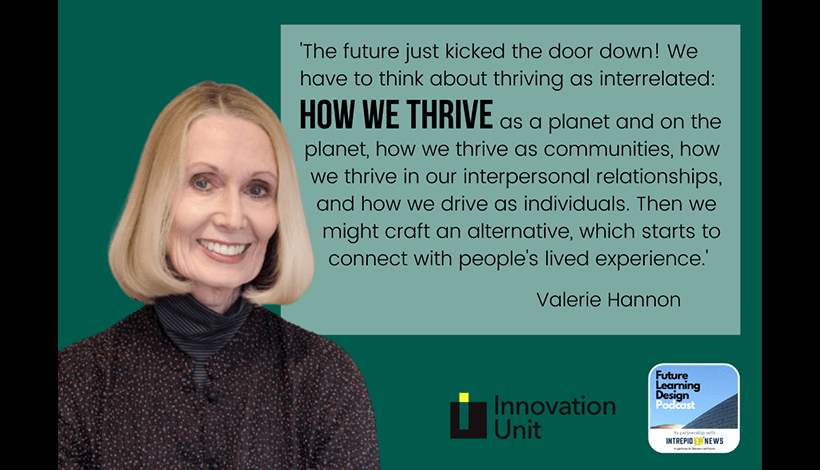We walked on the moon. You be polite!
Joni Mitchell’s piercing words were quoted to me by Valerie Hannon in our recent conversation for the Future Learning Design podcast. Just as Joni’s protagonist is sharply put back in her place by the patriarchal status quo demanding respect for his achievements, so too does the current dominant version of schooling resist change and demand respect for just doing what it does. Don’t interrupt the sorrow!
The pandemic is an interruption. But enough to spark lasting change? We know the status quo isn’t working for so many people. Arguably, it excludes more than it elevates… stresses more than it supports… it boxes off more than it brings out.
And it doesn’t even provide the skills that the economy needs — often its strongest narrative justification.
As Valerie says, “the future just kicked the door down”. We need a new narrative to take hold.
Valerie Hannon:
I started passing this book almost six years ago and the first edition came out five years ago. And I think it’s fair to say it got very little traction. So……


